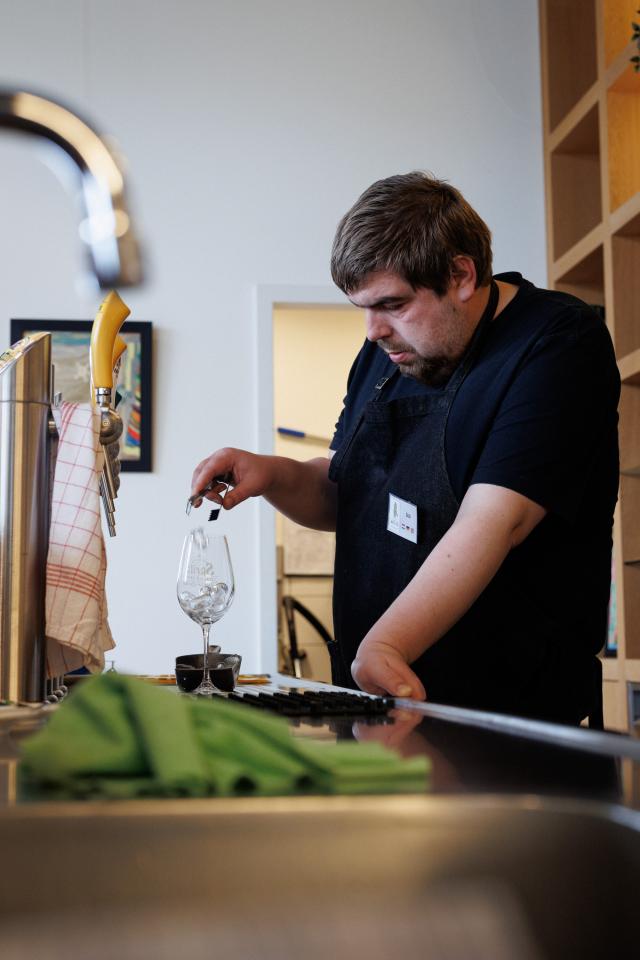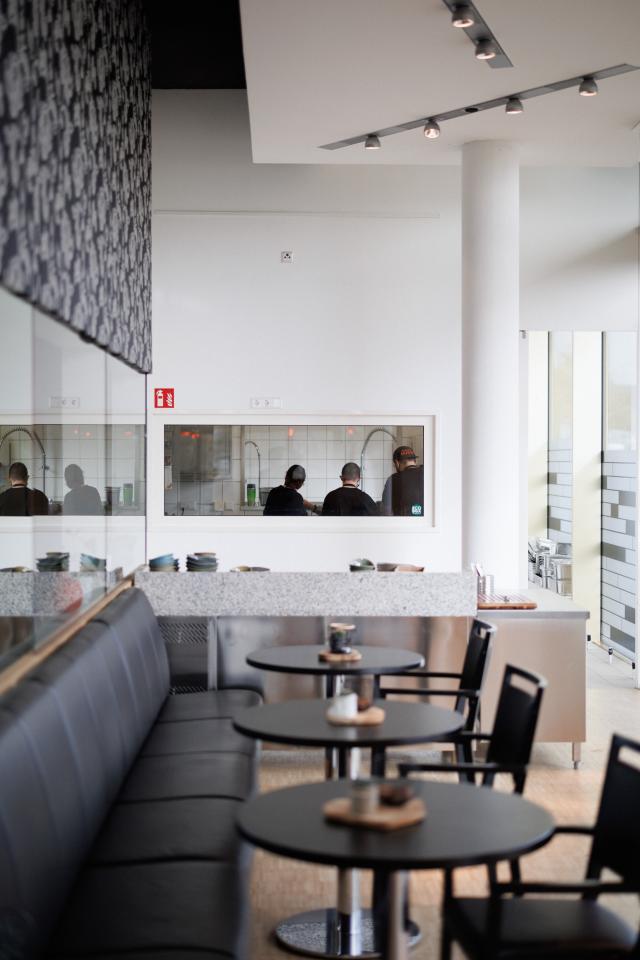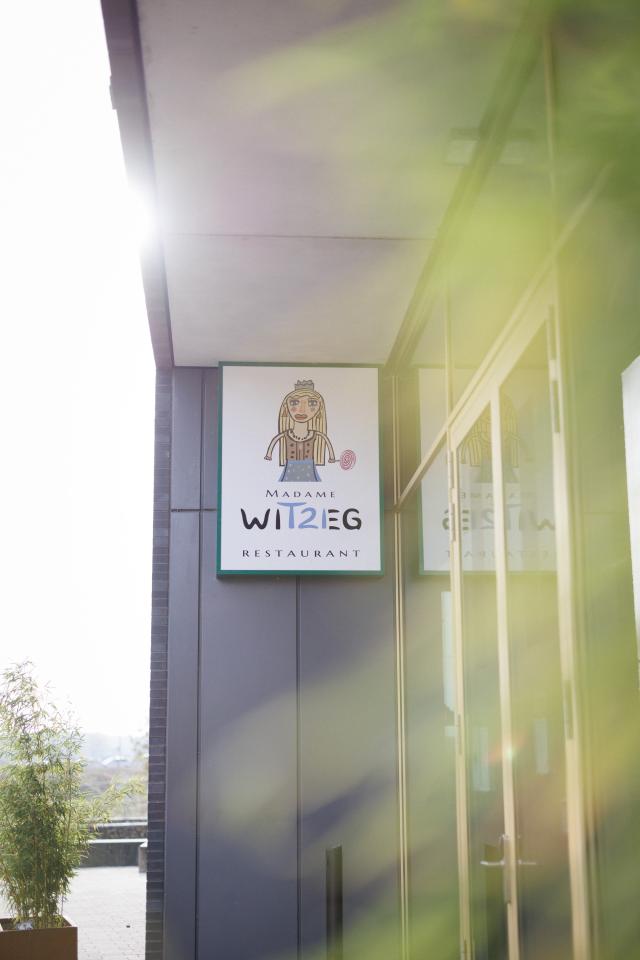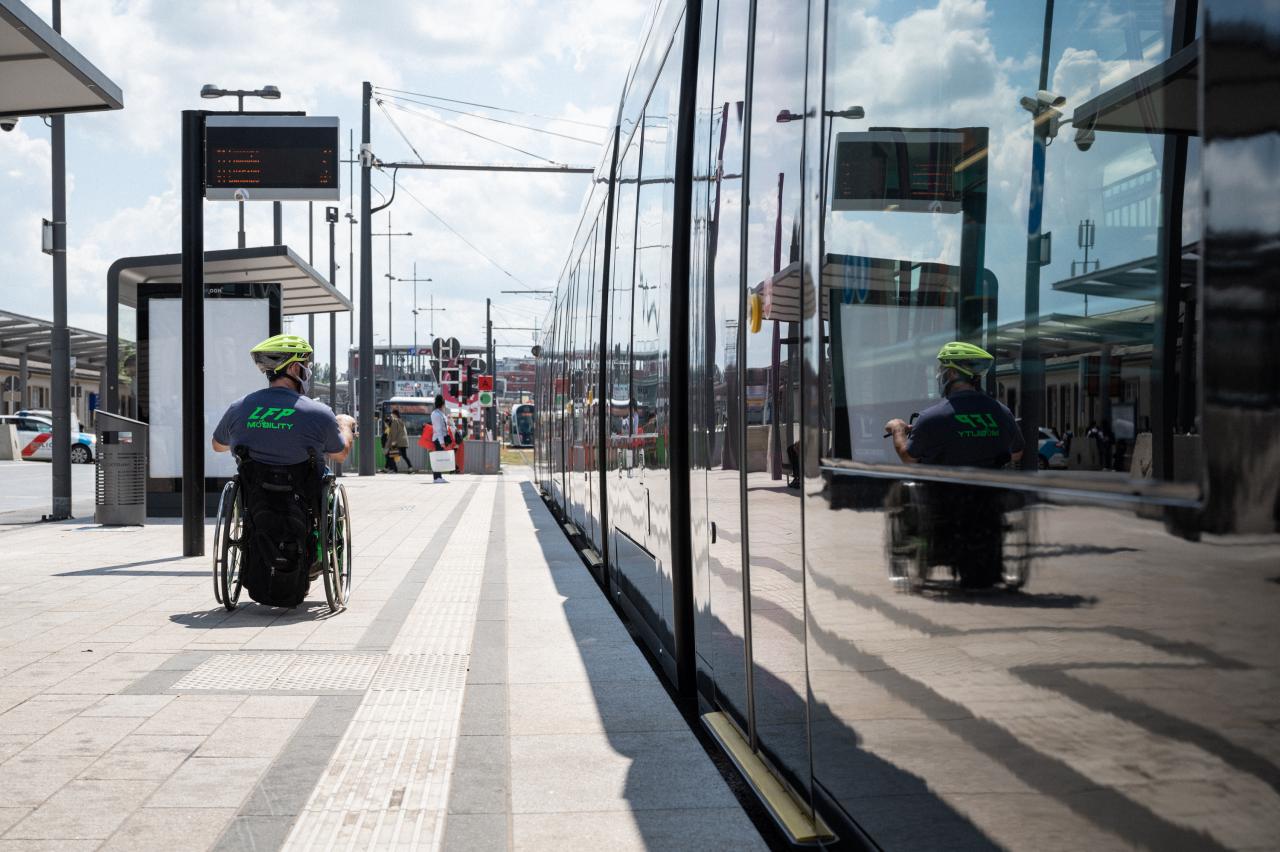
Listen to this article
To work - and be paid - like everyone else. This is the wish of people who work in a sheltered workshop. Various stakeholders report where the problems lie and to what extent improvements can be observed.
"For some, sheltered workshops ("ateliers protégés", ed.) are the best option, for others not", says Joël Delvaux. Not only does he work in the Départments des travailleurs handicapés (DTH) at OGBL (he also chaired the municipal council in the capital for déi Lénk from 2014 to 2017), but he was involved in the design and creation of the DTH from the very beginning. He himself is in a wheelchair and wanted to actively help ensure that the rights of people with disabilities are respected. "I spent my childhood in a boarding school in Switzerland", explains the 49-year-old. At the age of 13, he came back to Luxembourg, attended what was then the medical-educational centre in Bad Mondorf ("Centre médico-pédagogique de Mondorf") and ended up working at the Fondation Kräizbierg. "Later I tried my hand at the regular job market and came to the OGBL. At that time, I worked a few days a week each at OGBL, Info-Handicap and the government."
Positive changes
When asked about the conflicts at the Kräizbierg Foundation two years ago, Delvaux replied: "A lot has changed", probably alluding to the resignation of the Kräizbierg leadership, among other things. Let's take a brief look back: the social conflict at the Kräizbierg Foundation came to a head in autumn of 2020. Staff and residents gathered in front of the building at the end of September. The accusations: grievances within the foundation. The OGBL said at the time that there was evidence of bullying, threats, humiliation and sexual harassment on the part of the then director Jeannot Berg. Two years later, social dialogue was finally established. "There are now people from the staff and a person with the status of disabled worker on the board of directors. This person has only an advisory function, but he knows what is really going on and can have a say."
Kräizbierg is not a prime example, but it shows that positive changes are possible ─ they just take a long time. "The sheltered workshops are part of larger institutions and often there are foundations behind them. So they are private structures that follow their own statutes. Of course, they can apply to the relevant ministry for approval for a convention to cover the costs, but the ministry can't interfere." This is how it was at the time, he says: If the ministry had cancelled the convention, the Fondation Kräizbierg would have had to close, and people would have lost their jobs. "State control would be desirable, but we are in a quandary: it's good that the state can't control too much, but this fool's licence doesn't work either." He demands that every institution not only respects the UN Convention on the Rights of Persons with Disabilities, but actively implements it. "They would have to prove what they have implemented to get closer to the intended goals. Because so far they only have to carry out budgetary controls to show that no nonsense is being done with state funds. What results their projects have, however, is not examined. There is no body for that."
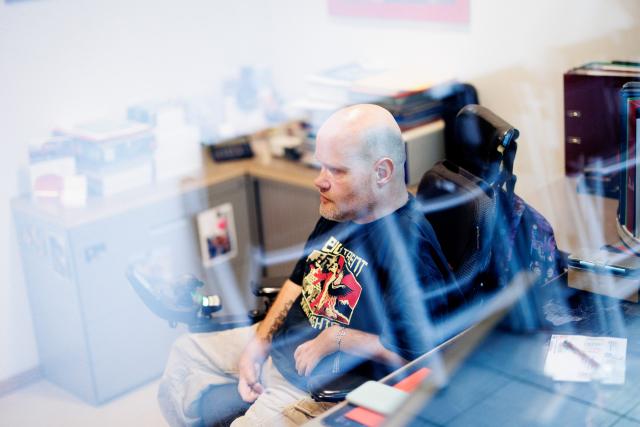
Joël Delvaux
In this context, Joël Delvaux also talks about the quotas, which "were not respected in my time either". The responsible minister, Corinne Cahen (DP), admitted that she herself did not know what the current situation was in regards to quotas in the state. "Five per cent of the total number of posts in public institutions should be occupied by workers with a disability, but because the government itself is not a model pupil, it cannot nag the private sector …", concludes Joël Delvaux. He has often heard a similar situation from workers who are to be reintegrated internally by their employers as a result of an inability to perform their last job. "There are many supervisors who are not happy when they have to do this. They are then annoyed because they can no longer fully utilise these posts. A lot of them try to push the affected workers out." He knows a man who worked in the security guard sector. He was sent to a container that was in an abandoned parking area. "No one came to park his car there. He had no electrical socket or heating in the container and was not allowed to leave it. He was alone all day and had nothing to do. The man approached us and we were able to help him." Why he gives this example? "These cases are included in the quota I just mentioned. This is how the quota is met because everything is added up."
"[We need] a person in a neutral position who can be contacted by those affected. This person should have the necessary means to react appropriately and, if necessary, to carry out an investigation."
Joël Delvaux
One idea that has been called for a long time to support affected workers in cases of grievances is a post along the lines of an ombudsperson: "A person in a neutral position who can be contacted by those affected. This person should have the necessary means to react appropriately and, if necessary, to carry out an investigation." According to Joël Delvaux, the reason why this post still does not exist is easy to answer: "From the government side, they say that such a thing is not needed. We would have the Ombudsman (Claudia Monti, ed.), the Centre for Equal Treatment CET, the Human Rights Commission. But these are all limited in their functions. In private structures, the Ombudsman cannot do much. The CET has an advisory function, as does the Human Rights Commission. Even if both institutions wanted to do more, it would not be possible."
Long waiting lists
To follow up on his statement at the very beginning: Joël Delvaux prefers the regular labour market. For him personally, the workshops have been a kind of stepping stone. "But there are also those who would actually have good chances on the primary labour market. So they take away another person's place, because as we know, they are very limited." According to the Ministry for the Family, Integration and the Greater Region, there are currently 27 such workshops in Luxembourg. "The waiting lists are long and even before the pandemic there was a shortage of 300 spots."
Mike is one of the people who got such a place. Although he is very happy with his job, he prefers to remain anonymous. Mike has dyscalculia and dyslexia and, like Joël Delvaux, went to Switzerland for his education, an option suggested by family friends. "The day he received his diploma was a very important moment in his life", adds Mike's mother. "Even today, when he talks about it, I can tell how happy he is." It makes them both all the more frustrated that they still have to fight for the recognition of his diploma.
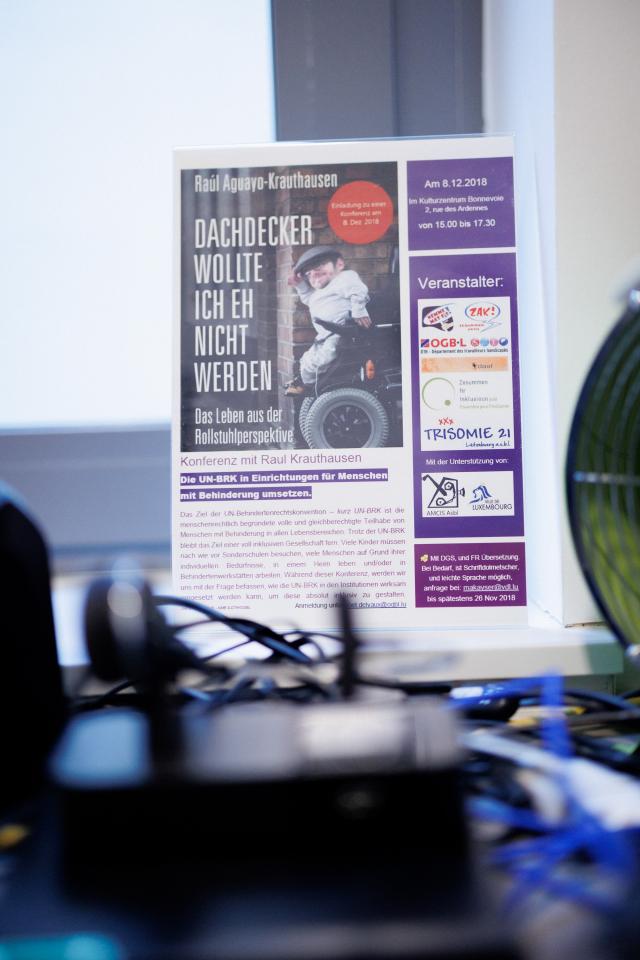
The regular job market was not a very pleasant experience for Mike, as the 24-year-old reports. "I was bullied and pushed out. It got to the point where I contacted the ADEM." According to his mother, "I was advised to file a complaint, but Mike didn't want to hear about it anymore. For him, it was the best solution. For the cause itself, I think it would have been better to do more." At that moment, her son's welfare was paramount.
Now Mike has been working in a sheltered workshop for a good four years. "I was a gardener for three years, a courier for one year and recently I started working for a farmer." He pauses briefly. "I have to say that I have never been so lucky. Everyone is super friendly, and the working atmosphere is respectful and pleasant." Visibly proud, he tells us that he was already allowed to drive a bigger machine in his second week. "I firmly assumed that I would have to wait six months to be trained, but he trusted me." He says he was equally amazed when he was allowed to drive the tractor at the very beginning. "If things keep going this way, then it looks really good." His experiences so far were less thrilling: he was never given credit for anything. "You had to be downright grateful that you were allowed to use the hedge trimmer. When I was still in the regular market, some things were explained in such a complicated way on purpose, even though they knew I didn't understand."
A work coach could help the supervisors with how to deal with their workers and support them ─ "if they have the necessary means", Mike's mother counters. "But as is so often the case, cuts are made in the social sector." He is not a person who wants to work on an assembly line, the young man says of himself. "I want to test out a lot. That way I stay fit and don't get Alzheimer's", he jokes.
"You had to be downright grateful that you were allowed to use the hedge trimmer."
Mike (name changed by the editors), about his experience on the regular job market
Mike and his mother both address the salary problem. "We've been waiting so long for something to finally happen. I live at the limit with my salary", Mike says. "We are in a good situation financially that we can support him so well", his mother explains. "We are aware that we are incredibly privileged and not every family has this luck. Moreover, Mike is our only child. When an affected person is on their own and has to make ends meet on their salary, it's quite difficult." Like Joël Delvaux, she denounces the privatisation of institutions. "The way they work is not transparent. Such workshops generate money, but nobody knows what exactly is done with it."
The problem with the salary runs like a red thread through all the talks. "Workshops definitely have their raison d'être", explains Martine Eischen, president of the Trisomy 21 Association. "In the 1980s, many parents campaigned incessantly for their foundation. There was nothing for affected people before that." But she too denounces the working conditions. "It's hard to move from there to the 'normal' job market, inclusion stands and falls with the appropriate mentoring. If someone has a kind of mentor who is supportive, it works, but if the mentor is sick or on holiday, it doesn't work."
Lack of promotion opportunities
Her colleague Pia Peller is clear: "They are supervised more than they are supported. Everyone has skills, but on the scale that is the case in many workshops, it is not possible to focus on the individual person and their skills. The offer is so limited, so people with different impairments are thrown together. So they cannot enjoy needs-based training because of the different impairments. I don't want to say that this is intentional, but those responsible lack the necessary resources." Pia Peller's son Ben has been working in a corresponding structure for 20 years and is not promised any opportunities for promotion or further training. "In the workshops you get an employment contract and that's it. Full stop."
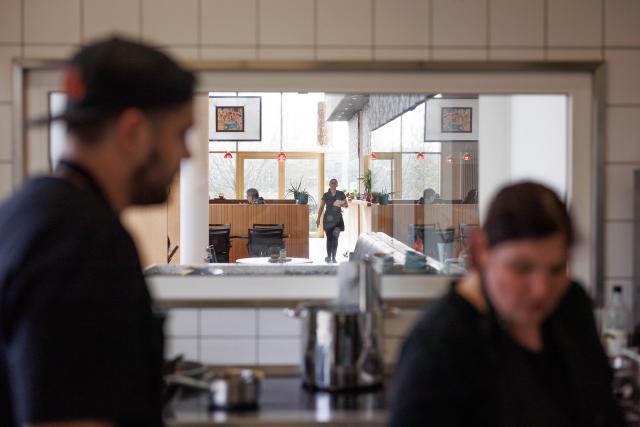
The Madame Witzeg restaurant in Belvaux undergoing training, with the official opening planned for January 2023
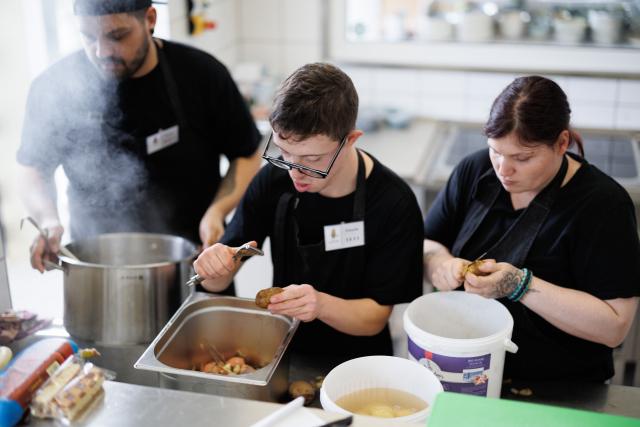

Joël Delvaux denounces the limited opportunities for promotion. "No career opportunity, no evolution, no salary increases. So, the salary remains at the non-qualified minimum wage. The state finances salaries 100 per cent, but there is no prohibition that says a structure can't pay more and then has to take over. Maybe it is already done that way, however, I don't know of a single institution that does it that way."
The income for people working in a sheltered workshop is equal to the hourly rate of the social minimum wage for non-qualified workers multiplied by the working hours foreseen in the employment contract. The social minimum wage is 2,313.38 euros gross for a 40-hour week and at the current index (as of April 1, 2022).
There is a possibility that a workshop may provide additional benefits. Unless otherwise stipulated by law or by contractual provision, the working time is 40 hours per week. This working time may include the duration of the commute and the socio-educational and therapeutic activities that take place during the time spent at the workshop. In addition, work placements organised by the responsible workshop can also be carried out during this time. Each worker in a workshop is entitled to six additional days of leave. A person who is unable to work due to the severity of their disability can apply for a corresponding income (RPGH), which is paid by the National Solidarity Fund (FNS). The income is equal to the amount of the guaranteed minimum income (REVIS).
Of course, he says, he is also aware of the advantages of sheltered workshops. "During working hours, some things are guaranteed: Physiotherapy, medical care, occupational therapy and so on. I myself have to organise that in my free time." However, this is not to justify non-existent career opportunities and a salary that is always the same.
"People who work in a workshop often do the same thing all their lives. We want to give them a perspective and reward good work."
Pia Peller from Trisomy 21 about the restaurant Madame Witzeg
Martine Eischen and Pia Peller from Trisomy 21 do not want to demonise the workshops all together. "Parents have been fighting for this for a long time and many are not ready, or no longer able, to take up this fight again now", says Martine Eischen. "It's understandable, because the burden is already great ─ work, family, disability of the child." In such a situation, it is nice to follow the path that is already there.
Nevertheless, she and her colleague are convinced that the conditions are anything but ideal. They have wanted to change this for some time: They have been planning the Madame Witzeg restaurant in Beles for several years. "Without the help of the former mayor Georges Engel and the current mayor Simone Asselborn-Bintz, this project would probably not have been possible", says Martine Eischen. Since October 15, the restaurant has officially become a workshop for professional integration. A test phase is currently underway, and the official opening is scheduled for January. "Actually, we wanted to be ready for a long time, but then Covid came and due to the war in Ukraine, various material deliveries were delayed." The restaurant aims to promote the potential of people with trisomy 21 and enable them to transition to the primary labour market. "We want to show all people that they can compete in society."
Inclusion is to be facilitated through partnerships with other companies. "It is looked at individually where people stand, because the work in a restaurant is not easy! ", says Martine Eischen. "We don't force anyone to go down this path, but we certainly have some members who are ready for just that." Potential candidates can therefore be employed in other restaurants on the first labour market. The whole thing also works the other way round: the partner restaurant sends its own staff to Madame Witzeg to see how the somewhat different restaurant and its employees work. "People who work in a workshop often do the same thing all their lives. We want to give them a perspective and reward good work", explains Pia Peller.
A total of two people with status have been employed in the restaurant so far, and two more will be added in January. A maximum of twelve could be employed. "There was a lot of enthusiasm at the beginning, but people who were there five years ago have since found something else. However, others will join who have now contacted us." Pia Peller's son is also already in the starting blocks, she says. "Ben is supposed to do an internship. But if he doesn't like it, he doesn't have to stay. That's the most important thing: we respect everyone's wishes. So if Ben doesn't like it, he goes back to the workshop where he currently works. That's what was discussed with the people in charge."
Project in planning for several years
The restaurant is just the beginning. Martine Eischen is planning a large, local community. "There will be flats, so we can centralise everything." Working as a team is the top priority. "Everyone involved should have an equal say." For Joel Delvaux, too, it must be clear for everyone: All people should have a say, even in sheltered workshops. Apart from the recent efforts of the Fondation Kräizbierg, there are other good examples such as the Ligue HMC. "They are a very good example of integration. In the social elections, people with a status can get on the lists to be elected. So they are represented in the delegations."
Education and awareness-raising must also be aimed directly at employers in the primary labour market, Joël Delvaux explains, and supports the idea of Mike's mother's job coach. There are many who want to help and support, but don't know what to do when it comes to the various administrative steps. "In the same way, many don't know where to find suitable workers." Joël Delvaux is divided on whether politics is doing its part. On the one hand, many promises are made that are not (always) kept. On the other hand, however, there is not a single party that has not yet addressed the issue. "This is what you see in parliamentary questions or with the candidates during the elections. People with disabilities are represented in the party committees of the DP, CSV, déi Lénk, LSAP and the Pirates. However, when it comes to forming a coalition, much of the election manifestos are lost." One can be curious to see whether the implementation will be better in the next legislatures. After all, the politicians will have two chances to do this next year.
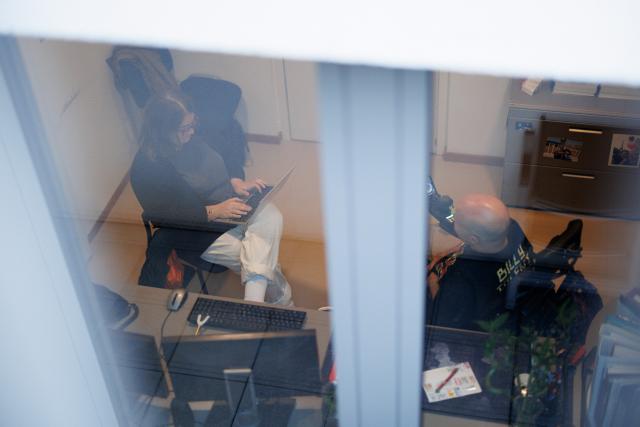
Related websites
-
National Action Plan for the Implementation of the UN Disability Rights Convention (in French or German)
mfamigr.gouvernement.lu -
Guide from Info-Handicap (in French or German)
modesdemploi.lu -
Additional information about work and income (in French or German)
mfamigr.gouvernement.lu -
Apply for RSH income
guichet.public.lu -
Information on inclusion assistants
adem.public.lu -
OGBL/DTH wants to promote the role of inclusion assistants (in French)
www.ogbl.lu
